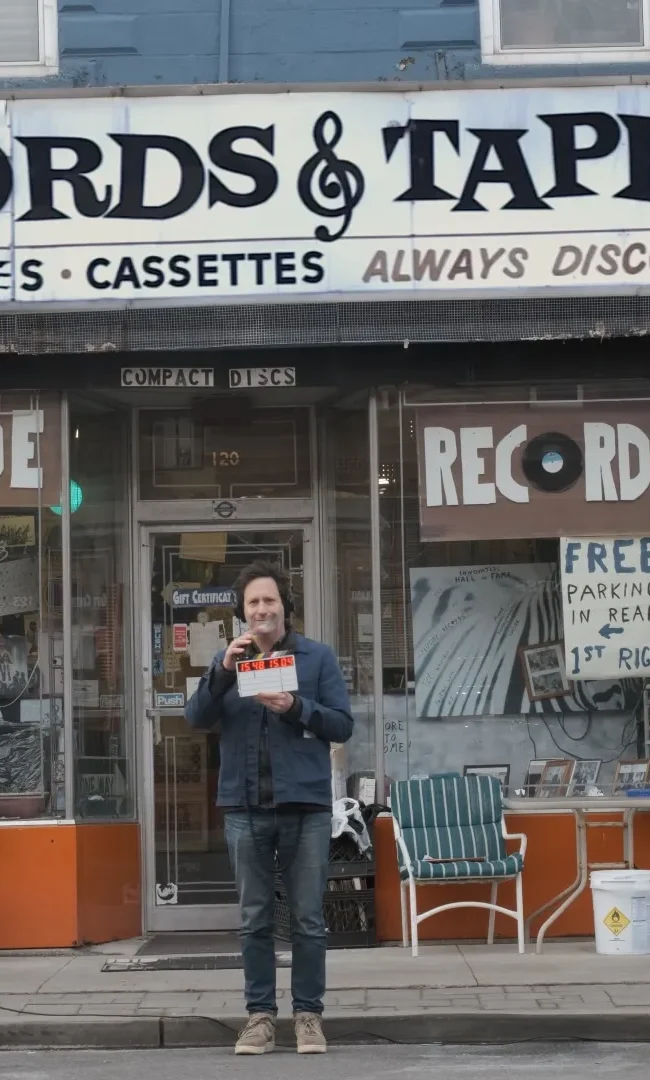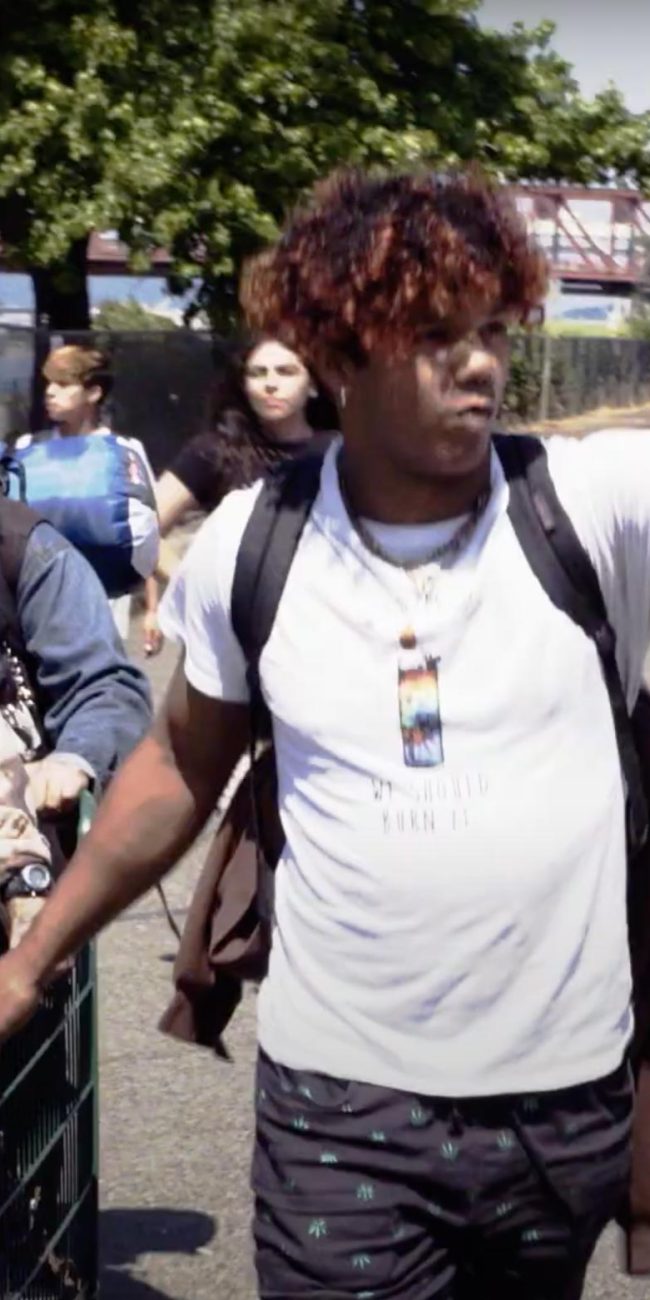A Conversation with Erin Lee Carr & Jesse Barron (I LOVE YOU NOW DIE: THE COMMONWEALTH VS. MICHELLE CARTER)
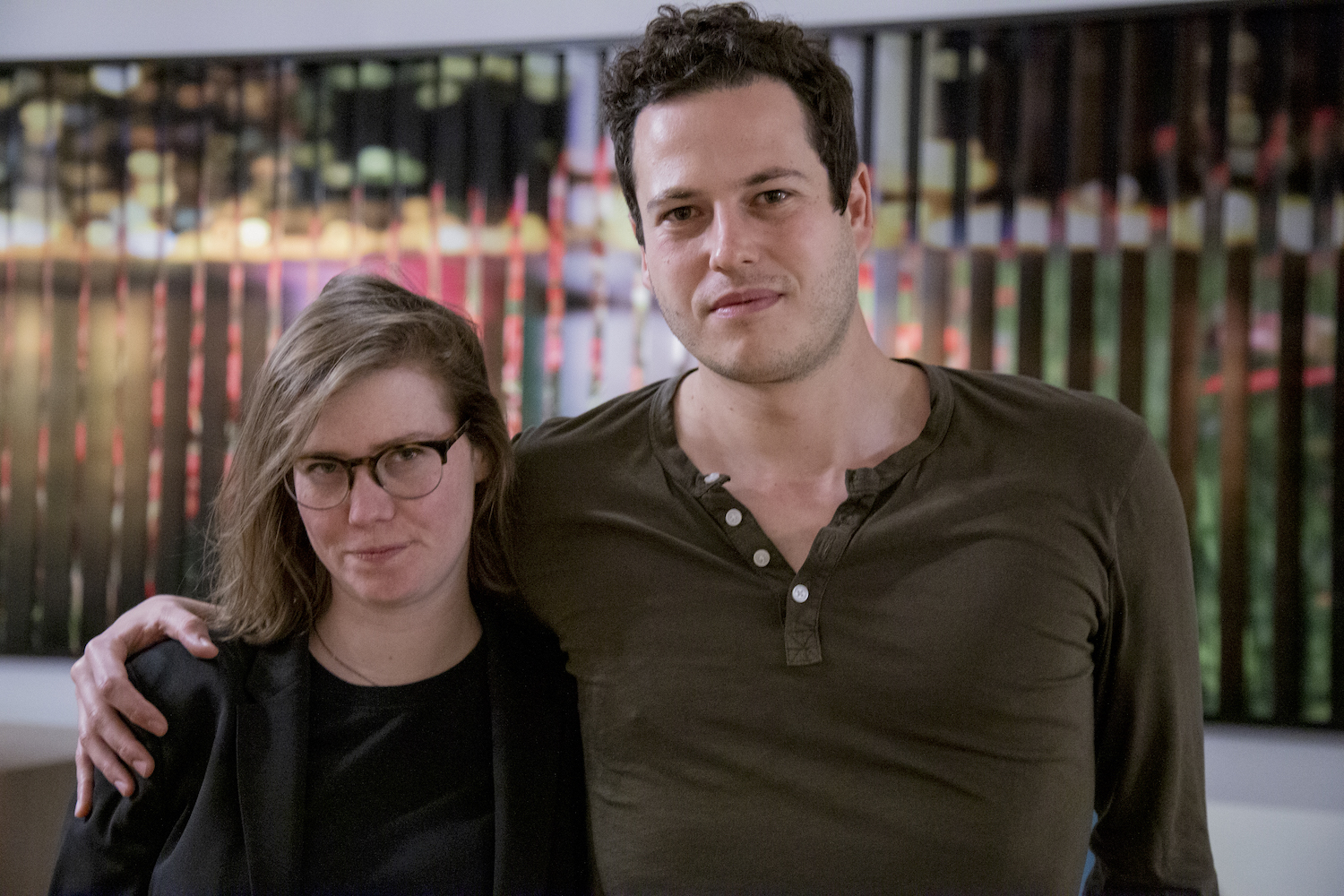
On Sunday, March 10, 2019, at SXSW, I interviewed director Erin Lee Carr to discuss her latest HBO documentary, I Love You Now Die: The Commonwealth Vs. Michelle Carter (which I also reviewed). Along for the conversation was journalist Jesse Barron, of Esquire, GQ and more, whose writings and research feature prominently in the film. The movie profiles the trial of Michelle Carter, a young woman accused of causing her long-distance boyfriend Conrad Roy III’s suicide via bullying text messages. Divided into two parts, one for the prosecution and one for the defense, the movie offers two opposing sides to the case, each convinced of the truth of its opinions. Carr effectively deconstructs the layers of hysteria and works to portray the humanity of all involved. Here is a condensed digest of our conversation, edited for length and clarity.
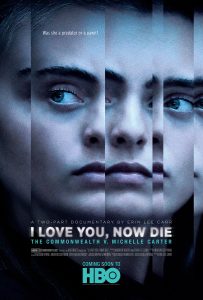 Hammer to Nail: Erin, did you always intend to air your film in two parts or did that structure emerge in the making of it?
Hammer to Nail: Erin, did you always intend to air your film in two parts or did that structure emerge in the making of it?
Erin Lee Carr: So, we did not know exactly what the form was going to be, but I thought that this is a really giant subject, and I wanted to explore the different ways of telling it. One of the things that I effectively wanted to do was present the prosecution side and the defense and give Michelle Carter the jury trial that she did not get. Of course, there’s music added, so it’s completely different from a trial, but I really wanted to think about her guilt and innocence and how people feel about it. And last night, we had a sold-out screening, and I asked the audience, “OK, let’s do a poll. Who thinks she deserved to go to prison? Who would find her guilty?” And 3 people out of a 165-person theater raised their hands. And some are not going to participate in a poll where someone’s yelling at them with a microphone, but I thought that was incredible.
HtN: Yeah, your film definitely makes the case, I think, that it’s a miscarriage of justice for a lot of reasons: a) for this case to ever have gone to trial, and b) for this woman to be in jail rather than getting help. Speaking of music and … I’m shocked, you’re saying courtrooms don’t play music and have fancy graphics going on?
Jesse Barron: Massachusetts hasn’t caught up.
HtN: (laughs) So, I was going to ask this question later but I’m curious, Erin, if you could talk about how you designed the graphics for the film and your choice to work with composer Ian Hultquist.
ELC: Ian has done every single one of my projects. He just understood implicitly how music needed to become a character in this, in this two-parter. Because I don’t have Michelle, and so there are these bits of unique moments that are dramatic and one of the only ways to really signify what I’m feeling is through music. We temped with a lot of Philip Glass and things like that, but I just so much appreciate … the movie is good in part because of Ian and his contribution. And for the graphics in the opening, it’s Josh Norton at BigStar. I don’t know, people just brought their A-game and so, it takes a village, but I was really lucky to have these collaborators.
HtN: I also really like the poster. I think it’s really nicely designed.
ELC: Judith Lupatkin at HBO. She’s incredible.
HtN: So, Jesse, at the end of the film, the last sound bite we have from you is you saying “I don’t think she’ll ever do jail time” …(laughs)… and so it does you a disservice in a way.
JB: (laughs) Somethings just age well, man.
HtN: What did you think when the appeal failed and she did, in fact, go to jail?
JB: Well, I always knew that was going to happen. (laughs) No, I was surprised, I was expecting that the judgment would be reversed on appeal. My read of Judge Moniz’s verdict was that he hedged, effectively saying “My hands are tied by the luridness of the case, by the anger of the community.” He was a former high-school teacher, had worked with adolescents before he became a judge, knew the community, knew the temperature in the community and knew that he couldn’t acquit outright. So, he hedged and said “Well, I stay the sentence through the appeal process and
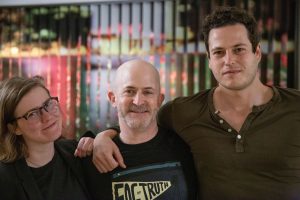
Erin Lee Carr, our Chris Reed and Jesse Baron
some day maybe there will be a law that will clarify this”. The next step, because of the way the court system is structured in the US, would be the Supreme Court. I don’t think it’s inconceivable that the question will ultimately be resolved by the Supreme Court.
HtN: Let’s see what this particular Supreme Court decides if that happens.
ELC: And so, to be very clear, I did not know when the appeals process was going to happen, so Jesse actually had one of the last soundbites in the film where he talks about the disparity of “you’re guilty but you’ll never serve time.” And so, for a long time that was this ending, which made people angry … the two people I showed it to. And then she was denied, and so it was like “Oh, we have to add to the film in the weeks before SXSW.” It just was a perfect ending within the story change, and as a documentary filmmaker you have to follow the story.
HtN: So, Erin, the two films of yours I’ve seen are this and Mommy Dead and Dearest and, with this and that film, you explore stories of women who do something wrong and are condemned for it…and then you peel back the layers to reveal another dimension to the story. What attracts you specifically to this kind of story?
ELC: My dad was a deeply complicated person who was, I think, a genius. He wrote a book called The Night of the Gun, where he examined his own complicated nature. And so, as I grew up as a kid, one of the things that we said in our family is that we contain multitudes. As a filmmaker, I always want to give other people that chance and opportunity and to carefully explore what happened. And there’s like a one-dimensional portrait that you can do and there’s the multilayered. And so, I think that it just…it was in the tradition of my family and how we saw ourselves in others.
HtN: And your father was journalist David Carr.
ELC: Yes.
HtN: In terms of access to people in the film, you did not have access to Michelle and the family, since they refused to be a part of it, although you wonder why…maybe if they realized how sympathetic the second half, particularly, turned out…and also her friend Alice wouldn’t do it. Were there any other cinematic frustrations? Did you try to reach out to the prosecutors to talk to them? Could you describe some of that process of reaching out?
ELC: Chris…cinematic frustrations! That is the best way of putting it. I love that, I’m going to start using that. I mean, it was a very frustrating project. I understood 100% why Michelle could not participate. One, she was in an on-going legal case. And then, she was found guilty and there was an appeal going on. So, I credit HBO for really putting time, energy and money into a project where it’s like you didn’t have Michelle in person…but I had ten thousand of her texts.
It was a long project: 80 shoot days. And it’s a very small team who made it, that’s how we work. And there were people like Jesse writing pieces that…I was really excited about. There were other people doing what I was trying to do, so you were always kind of on edge looking out for people. And it made for some uncomfortable tension, like we were vultures waiting to talk to this woman. And I didn’t really like that feeling and ultimately, I don’t think the film is a product of being a vulture, I think it’s more about being close to the story.
HtN: Speaking of vultures, though your film is not about journalists, I think it indirectly condemns the vulture-like attitude of some, particularly in real-life cases. It’s one thing to hound celebrities, which is bad, but they make a lot of money, so I don’t feel so bad, but regular people who are being tried and then…they’re just swarmed by paparazzi. That’s tough.
ELC: But I’m also making a film about her and I made money doing this so it’s like I need to look at my own agenda in all this.
HtN: Maybe, but I didn’t feel like the documentary was cruel or exploitative. What I’m referring to is the swarm of photographers. I understand that people have a job to do and certainly I also stick my microphone in people’s faces to ask questions, but there was just something that seemed particularly sad in those courtroom scenes…
ELC: I agree
HtN: So, Jesse, what drew you to this story? You’re such an integral part of it, since Erin features quite a lot of your reporting. What drew you initially to cover Michelle Carter?
JB: I grew up in Massachusetts, about an hour north of where the story takes place and I read an article in South Coast Today. And all I had was this mystery that took place between two people on one night. And every adult in the room, when I went to the first pretrial hearing, was trying to figure out what happened between these two kids on that night in the summer of 2014. And there’s only two people in the world who know it, and one of them is dead and one of them isn’t talking.

Michelle Carter
And in this very familiar, to me, out-of-time, old-fashioned Massachusetts world, this post-industrial South Coast world and then this very cosseted suburb, Plainville, where the storefronts haven’t changed since the 1950s, where, in the case of the South Coast, the whaling industry has not existed in a hundred years. Into this old-fashioned familiar Massachusetts world drops the glowing screen of this cellphone. And all the adults in these communities are suddenly going to try to find out what is going on among their children. And to me, as someone who grew up in that area and was, in age, sort of between these two parties, I knew that I had to write about it.
It was instantly, amazingly compelling.
HtN: One of the things that I think the film also exposes is the complete lack of comprehension that adults have for teen culture because, as you also discuss in your film, 20 years ago, 30 years ago there wasn’t this same way of amplifying teen insecurities that we now have, and so perhaps it wasn’t as big a deal that people didn’t know everything that went on. It does seem to me like these devices, at least until we figure out the next thing, amplify these teen insecurities. And I think your film does a great job exploring that.
ELC: I wanted it to be a meditation on loneliness, I mean that’s what I felt inside the courtroom. Who amongst us hasn’t had a moment when where we’re being pushed out of a pack? And it was, I think, so viciously done to Michelle that it brought out the natural mama bear in me and I was just like, “This is unfair.” The motive is that she needed attention, and you’re going to bring all of her friends in and publicly humiliate her and…I just…I thought it was really disgusting and I hope that the film shows that she was just searching for communication and belonging and … I don’t know, it just, it made me really upset the way that that was handled. And the prosecutors agreed to an interview with me, and we were all set to go and then they called me last minute and canceled. And I have significant feelings about when people do that to me.
HtN: Sure.
JB: I have a less immediately sympathetic or contrarian attitude towards the presentation of her at first, although in the end, in the documentary I try to be more sympathetic trying to explain it. But I think the thing that gives the story such heft and weight, as you guys are saying, is that even if that is all true, as you say, that the media narrative got completely out of hand and was this sort of fabulistic account of this vicious, icy bitch who killed this kid…the reality remains that the thing that gives this story weight is that someone died as a result of this. And the reason that it’s so irresolvable is that it’s not just a straight case of the media and the public and a town arraying themselves viciously against a teen girl. There’s also this irretrievable cost that no one will ever get back. It gives it this center, this weight.
HtN: And although Michelle is still alive, her life has been destroyed, too…
JB: Totally.
HtN: …because I can’t imagine what it will be like when she gets out of jail, and if she’ll get the help that she so clearly needs.
ELC: Yeah, it’s interesting that I feel sympathetic for her being pushed out of the pack when somebody’s dead. I think there’s a tremendous amount of sadness that I feel for the Roy family.
HtN: Of course.
ELC: I mean they…they just…there’s just photos of him everywhere.
HtN: Yeah. It’s devastating.
ELC: It’s like he’s been…it’s like he’s been abducted. And they’re just left in this state of complete franticness about it. And I think that I tried to show that but also show the immediate circumstances that led to his death, which is deeply painful for everyone.
HtN: And I think your film does that, dealing with complex issues in a complex way. I want to congratulate you on it, and Jesse on your reporting, as well. Thank you for making the film.
ELC: Thank you, Chris.
– Christopher Llewellyn Reed (@ChrisReedFilm)
Like what you see here on Hammer to Nail? Why not pay just $1.00 per month via Patreon to help keep us going?








